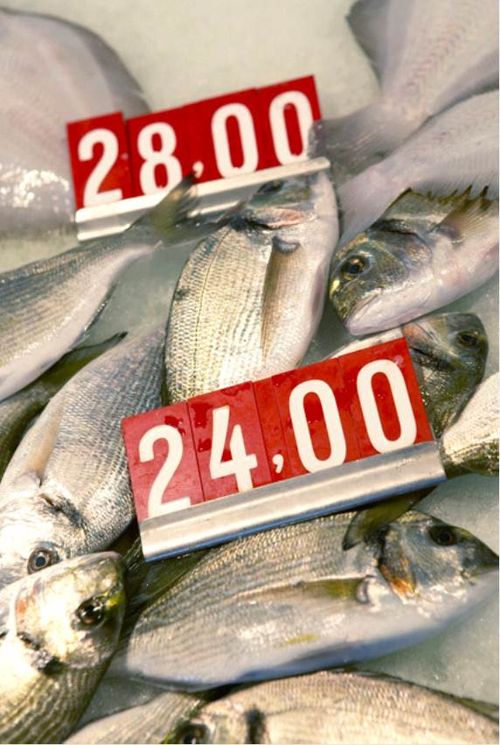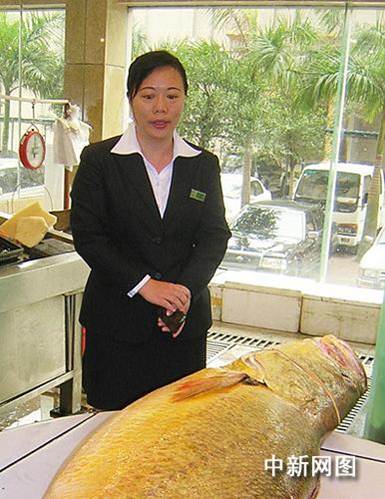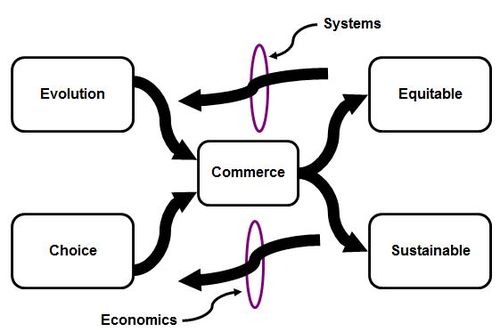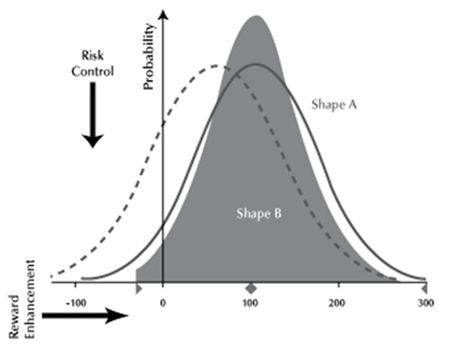
Professor Michael Mainelli and Ian Harris (see bio's at end of blog entry) are regular guests of the Financial Services Club, and were invited back to close the London season of meetings with an engaging discussion about the Price of Fish.
You may wonder what anything in banking has to do with The Price of Fish?
Suffice to say that it is the way that Michael and Ian examine the world’s problems.
They suggest that it is not the circumstances that are too complex today, but our way of reading them that is too simple.
Too simple and often too wrong.
That is why we are in crisis today, but there are ways to look at the economics of the world in a different way.
For example, using the models developed by quantum physicists, Michael and Ian blend four streams of thinking around choice, economics, systems and evolution, in a combination they believe is the key to making better decisions and, in turn, finding answers to the world’s most wicked problems.
The presentation was a fantastic close to our season and Michael and Ian have kindly provided me with their script and slides to share with the Finanser’s audience.
Enjoy …
The Price Of Fish: Making Sense Of The Way The World Really Works
Transcript of a talk by Professor Michael Mainelli, Executive Chairman, Z/Yen Group and Ian Harris, Managing Director, Z/Yen Group at the Financial Services Club, IOD City, 35 New Broad Street, London EC2 on Wednesday, 4 July 2012 at 18:00.
Thank you for the introduction Chris, and good evening ladies and gentlemen.
As Chris mentioned we recently produce a book, the Price of Fish and, in this context, we’d like to share three stories with you tonight.
To get started, once upon a time there was a man who ran a fish and chip shop.
This man ran one of the finest fish and chip shops in the whole of the country.
People came from miles around to get tasty fish that was freely covered in thick egg-batter including his secret ingredient (beer) and thick-cut chips with plentiful sauces.
In fact, the man was so successful that he could afford to send his son to complete an MBA at a top business school.

After graduation, the son came back to work with his dad.
“Dad”, he said, “based on the current economic statistics, we’re heading for a recession. You’ve got to stop using all that thick batter, and you dish out ketchup as if it was free.”
The father was torn.
He’d always been generous to his customers, but his very bright boy didn’t get all that education for nothing.
So, reluctantly, dad cut back on the egg-batter and the sauces. His son even convinced him to leave that pricy beer out of the batter.
It was just in time, because it turned out his son was right – dad’s business took a real dive.
My father told me that story.
I love to embellish it a little, but the underlying truths in that tale are timeless and most prescient in our troubled commercial times.
The ability of people’s opinions to affect other people’s opinions has everything to do with the price of fish and chips.
We call this a feed-forward system or positive feedback – and it’s a large part of the reason that why markets have fat tails, black swan events and unpredictable prices that diverge from long-term values.
Markets are fascinating.
As a former scientist, the one thing that clearly distinguishes social systems from physical systems is intelligence.
Intelligence gives commercial systems the ability to predict their own behaviour, but prediction is often wrong and can lead to perverse consequences.
In a similar vein, when I applied for the post of Mercers’ School Memorial Professor of Commerce here at Gresham College in early 2005 I outlined 15 lectures, around a theme; that “choice” could be the distinguishing characteristic of 21st Century commerce.
My three year tenure mysteriously grew to four years and in the end I delivered 28 lectures rather than 15.
As I was borrowing heavily from our joint articles throughout those years, it only seemed polite to ask Ian to share my pain on a couple of occasions.
You can, of course, view all those lectures, plus a few more since, at your leisure, so the question we’ll focus on tonight is “why did we bring out a book?”
The first thing to note is that the book is not, emphatically not, a collection of lectures.
Sure, many of the chapters have similar titles, but we have really worked on the material to make it a book, not a bunch of transcripts.
All of my lectures, plus Ian’s, plus a lot of other material, have been ruthlessly rationalised to boil it all down to 328 pages.
One reason Ian and I wrote The Price of Fish is that we care about two big social challenges.
The first big social challenge is evident doubt about our own sustainability.
Whether it’s climate change, pollution, biodiversity or just the recognition that our own successes have led to population growth that may bring about our downfall, people clearly have more and more concerns about sustainability, the long-term.
“Koyaanisqatsi” is a Hopi word for “crazy life”, and also the title of a prophetic, non-verbal 1982 film about the world being out of balance.
Humanity has been having more and more koyaanisqatsi moments.
The second big social challenge is evident doubt over the sensibleness of our governments and our economies.
The drama of the recent financial crises provides many opportunities for tragic heroes, from hedge funds to crooks to big bank chairmen to politicians to regulators.
In 2008 three fishermen, well one was a housewife, landed an 85 kilogram, 1.68 meter, Bahaba fish after a 90 minute fight.
This Bahaba fish is colloquially called a giant yellow croaker.

Source: Sohu News, China
They thought they hit the jackpot when they sold the fish to a local fish buyer for HK$20,000, about £1,300.
But the fish buyer sold the massive fish, which is highly prized for its swim bladder, for HK$580,000, about £38,000, to a local restaurant.
But then the restaurant sold the fish to a mainland Chinese buyer for HK$1,000,000, about £65,000.
The three fishermen clearly undervalued their catch.
Despite our modernity, we don’t know the price of fish.
There’s a dark, sad coda to this story, taking the American slang meaning of “croak”, i.e. “to die”.
The giant yellow croaker is critically endangered, nearly extinct, and few survive to maturity given overfishing.
We live in a strange world where, after millennia, we still don’t know the price of fish.
If we knew the correct price of fish, one-third of the world’s fisheries wouldn’t have collapsed and we wouldn’t be projecting total global fisheries collapse within the next fifty years while the seas grow increasingly acidic.
So what is “The Price of Fish”?
Douglas Adams quips, “You can tune a guitar, but you can’t tuna fish. Unless of course, you play bass.”
But can you price a fish?
Well, if you believe in our big themes of population growth and resource scarcity, the price has been too low for too long.
If you’re a pessimist, you terrifyingly believe the demand will shrink to empty.
If you’re an optimist, then you believe the supply and demand might just be half full.
If you’re like us, you’ll be an optimist, because pessimism is for better times.
In The Price of Fish, we try to make sense of the way the world really works.
I think we all have a small imp of fear that maybe, just maybe, everything isn’t quite what it seems – a bit like the hollow earth theory or UFOs.
Sir Thomas Gresham founded Gresham College, our favourite Tudor Open University, in order to promote the New Learning of Natural Philosophy.
What is the New Learning in Commerce today?
The physicist David Deutsch remembers the wonder of being told as a small child “that in ancient times it was still possible for a very learned person to know everything that was known.”
He points out that a good interpretation of everything was that the very learned person should have the right concepts, explanations and theories to understand and explain the fabric of reality.
Deutsch contends that the four key theories for understanding the universe are quantum physics, epistemology, the theory of computation and the theory of evolution.
Deutsch prompted an excellent, similar question for us that, in 2005, opened my first lecture in this very hall, what should a learned person know in order to know everything that is known about Commerce?
Ian and I contend that there are some strong parallels in Commerce with Deutsch’s answer for the physical world.
While there is as yet no grand unified theory of commerce, and may never be, we can still embark on a journey to explore the tools and ideas that can help society make better decisions about how to live successfully over long periods on a shrinking planet.
We would suggest four basic areas of knowledge, or four streams, that we believe need to be included and integrated in order to understand and explain everything that has to do with the price of fish:
- choice: understanding how people develop knowledge and biases and how these perceptions affect behaviour. Normative aspects of choice such as fairness, trust and ethics feature in this stream;
- economics: pondering models of exchange between people and expanding the debate about the role of government and social institutions;
- systems: in the world of commercial and political economics, systems thinking encourages us to break down complex systems into sub-systems with interlinked information loops of feed-forward and feed-back;
- evolution: in particular innovation and competitive selection. This stream highlights wicked problems that can’t be solved, just evolved towards incomplete solutions, such as climate change.

But on our way to a sustainable and equitable world we encounter wicked problems.
Fritz Zwicky, C West Churchman, and others contributed to the development of the term “wicked problems”, which was introduced in the 1970s by Horst Rittel and Melvin Webber, in a treatise for planning for ill-defined design and planning problems.
In this context “wicked” means messy, circular and aggressive.
These problems are not the comparatively tame problems most decision theorists study, for example chess, game theory or puzzle solving.
The world really is messy, circular and aggressive.
According to Laurence J Peter of The Peter Principle fame, “Some problems are so complex that you have to be highly intelligent and well informed just to be undecided about them.” But if you have a unified theory of Real Commerce, you can make sense of how the world really works, so shouldn’t we be using it on “Wicked Problems”?
We hope we have shown people how they might approach wicked problems using the four streams.
In the book we apply our risk/reward approach to wicked problems and make suggestions such as confidence accounting, using BET%s, options markets for intellectual property, how to measure liquidity or risk-based natural resource insurances.
Two other words help to explain the integration of knowledge that we seek.
They might seem archaic, but we believe they are useful for our purposes and in any case overdue for revival.
The first is consilience, which means the unity of knowledge, or, more literally, the leaping together of knowledge.
The idea originates in ancient Greece, although the English term is usually attributed to the nineteenth-century thinker William Whewell, who sought to describe a synthesis of inductive reasoning from several disciplines.
The humanist biologist Edward O Wilson revived the term in the late twentieth century in his book of the same name.
Consilience is the best we can find to describe, in one word, the integration and fusion of knowledge we envisage when we describe the blending of our four streams into real commerce.
The second word is catallactics.
The Austrian economist Ludwig von Mises used this regularly, as did Friederich von Hayek.
In the 1940s, Hayek said that catallactics “was derived from the Greek verb katallatein (or katallasein) which meant, significantly, not only ‘to exchange’ but also ‘to admit into the community’ and ‘to change from enemy into friend.’” Indeed, Hayek even suggests that someone who studies exchange or commerce might be called a catallactist rather than an economist.
There is a rich point here: we assert that real commerce, combining the several disciplines that affect the price of fish, is more akin to catallactics, as Hayek defines it, than to economics as normally defined.
Communities matter.
There is an old financial markets story about how fish trading works.
Back in the early 1900’s, on rumours that sardines had disappeared from their traditional waters in Monterey, California, commodity traders started to bid up the price of tinned sardines; a vibrant market ensued and the price of a tin of sardines soared.

A classic bubble.
This fervent trading went on for some time.
One day after some successful trade a buyer chose to treat himself to an expensive snack; he actually opened a tin and ate the sardines.
They tasted awful and made him feel ill, so the buyer called the seller and told him the sardines were no good.
The seller said, ‘You don’t understand. Those are not eating sardines, they are trading sardines.’
Ultimately, sardines off California were fished out by the 1950s.
First, this story again illustrates our frequent ignorance about the price of fish.
Had people really known the price of fish over space and time, they wouldn’t have overfished the North Sea, the Grand Banks of Newfoundland and other fishing stocks including Monterey’s.
Second, we need a set of tools, or conceptual frameworks, to help understand what is happening in the supply and demand for fish, the wider politics of fishing communities, and the even wider global market pressures on fishing industries.
Economics alone is not sufficient.
In fact, as with all systems, it’s not so simple.
There are complex interactions among fishermen, sardines and the Pacific Decadal Oscillation.
Third, we need a consilience of ideas, alongside economics, in essence theories about how the world really works, to help make better decisions about long-term value.
Fourth, community behaviours matter.
It’s not all negative.
One good example of consilience is the success of transferable fish quotas.
A regulator sets a species-specific total allowable catch, typically by weight for a given time period.
Quota shares are allocated and can be bought, sold and leased.
Transferable quotas can be allocated to individuals or communities.
Transferable quotas are a good example of consilience about choice, deciding how to help people choose sustainable fishing; economics, using markets to allocate scarce resources; systems, thinking holistically about the environment and society; and evolution, from the science of complex biosystems to the evolving technologies of fishing which make it increasingly efficient.
The first country to adopt transferable quotas as a national policy was New Zealand in 1986.
Based on success, transferable quotas have spread globally and it is estimated that about 10% of the annual marine harvest is now managed by transferable quotas.
In some work for the UK government we proposed an extension whereby the quota, the right to fish, was distinguished from the activation, actually using the quota.
To use a fishing quota triggered the need for an activation certificate, and an activation certificate was only valid with an insurance guarantee that the user would not harm the underlying fishing resource, else the insurer would have to pay to return the resource to its former condition.
People could own a transferable fish quota without fishing, e.g. an NGO trying to buy breathing space for fish.
People who overfished would be subject to commercial costs for their recklessness.
The fishing community was brought to the fore.
The consilience of four streams and catallactics.
In the book we try to help people take a richer view of risk.

This matters for people in the Financial Services Club.
We believe that financial markets have a huge role to play in reducing volatility, and reduced volatility is intimately related to sustainability.
“The certainty and confidence that insurance provision brings to all our daily lives, whether business or personal, enables us to breathe more easily, to find the confidence to let innovation flourish and to engage with the present and the future, chastened by the past but not allowing the fear of the possible to paralyse us in the present.” [Mary McAleese, President of Ireland, remarks to the European Insurance Forum, RDS Concert Hall, Dublin, 30 March 2010]
French thinker, Claude Lévi-Strauss, once concluded that, « Le savant n’est pas l’homme qui fournit les vraies responses, c’est celui qui pose les vraies questions ». “The learned man is not the man who provides the correct responses, rather he is the man who poses the right questions.”
This is an old point that cannot be made often enough – or can it? Hopefully, our story doesn’t end with this book.
We continue to ask childlike questions.
We continue to suggest ideas based on our risk/reward approach such as index linked carbon or forestry bonds.
In 2007, we began giving a running presentation to our clients and friends on the “Credit Scrunch”, asking the punch question – “when would we know our financial system is working?”
The question provoked answers such as “when a 20-year-old can responsibly enter into a financial structure for retirement”, a 100 year question, and “when normal investors can safely fund a 75 to 100 year forestry project.”
All questions of feed-forward.
We began using the term Long Finance, in recognition of related thinking at Long Now.
Established with Gresham College, Long Finance seeks to expand frontiers, change systems, deliver services and build a community.
Long Finance has held numerous events.
Guest speakers have included Brian Eno, Professor Avinash Persaud, Neal Stephenson, Stewart Brand, and others.
Long Finance has launched four cross-cutting programmes, viz.
The Eternal Coin, Meta-Commerce, London Accord and Financial Centre Futures.
Long Finance has published several reports, on the Road to Long Finance, the Eternal Coin, the future of mortgages, pensions, forestry, water and biodiversity.
We are exploring a lot of interesting things, as indicated above.
I’ll just pick out two.
Confidence Accounting is a proposal to use distributions, rather than discrete values, where appropriate in auditing and accounting.
In a world of Confidence Accounting, the end results of audits would be presentations of distributions for major entries in the profit & loss, balance sheet and cashflow statements.
The proposed benefits of Confidence Accounting include a fairer representation of financial results, reduced footnotes, more measurable audit quality and a mitigation of mark-to-market perturbations.
Andy Haldane, Executive Director for Financial Stability at the Bank of England welcomes the proposal and writes: “my hope is that this proposal moves our thinking a step closer towards a set of accounting standards for major entities that put systemic stability centre stage. In the light of the crisis, anything less than a radical re-think would be negligent.”
For a quick introduction to Confidence Accounting, particularly its application to banking, in 2011 the CISI published “Accounting for Confidence” which provides a short overview.
Confidence Accounting was introduced for the non-professional in “The Price of Fish: A New Approach to Wicked Economics and Better Decisions”.
ACCA, CISI and the authors have established a consultation period till the end of 2012.
Long Finance intends to host a number of autumn discussion events during the consultation period where people will be welcome to put forward their thoughts, criticisms and suggestions.
We are also exploring, in some fascinating work, the ideas behind money.
At Z/Yen have been proposing that some of the support for small businesses could come from their own monetary system, a UK WIR, as has been working for 78 years among the 65,000 small businesses in Switzerland.
On what might the Swiss WIR mean for the UK, Z/Yen brought out a report on Capacity, Trade & Credit with the City of London Corporation in December.
The full report was 200 pages and had numerous recommendations about using new currencies and exchanges to increase economic growth.
Lord Sassoon participated in the launch and a number of other senior officials are exploring the implications of the report.
For the City of London, this has been their most commented-upon report since the Global Financial Centre Indices – www.globalfinancialcentres.net - began in 2007.
They’ve encouraged us to promote some more discussion, via Long Finance – write a few editorials, convene a Forum later this year, etc.
All that said, perhaps the most important thought was trying to introduce a UK WIR.
To the Swiss, it’s a clear success comprising a quarter of Swiss firms and about £3.2 billion of trading (an average trade is half CHF and half CHW).
In summary though, all the Swiss did in 1934 was to push their regulator to regulate two currencies rather than one.
They removed the “monopoly” on money that most nations believe fiat currency requires.
From there the system does its thing or not.
The national currency retains its supremacy based on the universality of tax and its monopoly on the use of force, but also in competition for credit.
It bypasses the crazy and unstated assumption among far too many, that fiat tax scrip plus leveraged banking will magically equal the trust and credit of the national economy.
There are a few more modern examples in the report, including a recent large international player, Ormita; and the WIR history is not without its twists and turns.
Still, these are areas well worth exploring.
Commercial transactions and money are inextricably linked to trust in the community.
Antiseptic, neutral exchanges of currency don’t exist.
Each transaction with another person links us just a little bit more to the other person’s societal mores, them to ours, and both of us to the future.
Without aspirations, our communities have no future, and our coins no value.
This leads to our Long Finance koan – “If you have some trust, I shall give you trust.
If you have no trust, I shall take it away from you.” Long Finance seeks to balance trust across space and time.
Thank you, and Ian and I look forward to the discussion.
Download a full set of the slides and script or get a copy of the Price of Fish at Amazon
Biographies
Michael Mainelli co-founded Z/Yen, the City of London’s leading commercial think-tank, in 1994 to promote societal advance through better finance and technology.
He is Professor Emeritus of Commerce and a Fellow at Gresham College, Visiting Professor at the London School of Economics Department of Management Information Systems & Innovation Group, a non-executive Director of the United Kingdom Accreditation Service - the UK’s sole accreditation body for certification, testing, inspection and calibration services, a non-executive Director of Sirius Exploration Plc - a mining company, a Trustee of Ocean Alliance & The Whale Conservation Institute in Massachusetts & The International Fund For Animal Welfare, on the editorial board of the Journal of Strategic Change as well as the Journal of Business Strategy and on numerous advisory boards.
Ian Harris is a Director of Z/Yen which he co-founded in 1994.
At Z/Yen, Ian specialises in strategic planning and systematic performance improvement in both the not-for-profit sector (which he leads) and also commercial sectors.
Prior to Z/Yen, Ian led Binder Hamlyn's management consultancy's financial management systems work.
Ian is a regular contributor of articles and pieces for the business and not-for-profit press.
He is co-author, together with Michael Mainelli, of the practical book "IT for the Not-for-Profit Sector" and the best-selling novel "Clean Business Cuisine".
Chris M Skinner
Chris Skinner is best known as an independent commentator on the financial markets through his blog, TheFinanser.com, as author of the bestselling book Digital Bank, and Chair of the European networking forum the Financial Services Club. He has been voted one of the most influential people in banking by The Financial Brand (as well as one of the best blogs), a FinTech Titan (Next Bank), one of the Fintech Leaders you need to follow (City AM, Deluxe and Jax Finance), as well as one of the Top 40 most influential people in financial technology by the Wall Street Journal's Financial News. To learn more click here...






















